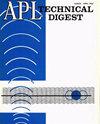ARGOSY:去往外太阳系的建筑
IF 0.2
Q4 ENGINEERING, MULTIDISCIPLINARY
引用次数: 2
摘要
原则上,所有太阳系天体都是人类就地探索的目标。ARGOSY(去往外太阳系的建筑)重新解决了人类探索外行星的问题。ARGOSY的架构方法在规模和能力上都是可扩展的,因此可以在相同的人员规模和时间要求下到达越来越远的目的地——木星、土星、天王星和海王星系统。为了使这种任务能够进行,必须使用具有适当余量的可实现技术,以便在系统一级建立可行的技术办法。因此,ARGOSY迈出了超越火星的一步,解决了太空探索愿景中最困难的部分:将人类的存在扩展到整个太阳系。本文章由计算机程序翻译,如有差异,请以英文原文为准。
ARGOSY: ARchitecture for Going to the Outer solar SYstem
ll solar system objects are, in principle, targets for human in situ exploration. ARGOSY (ARchitecture for Going to the Outer solar SYstem) addresses anew the problem of human exploration to the outer planets. The ARGOSY architecture approach is scalable in size and power so that increasingly distant destinations—the systems of Jupiter, Saturn, Uranus, and Neptune—can be reached with the same crew size and time requirements. To enable such missions, achievable technologies with appropriate margins must be used to construct a viable technical approach at the systems level. ARGOSY thus takes the step past Mars in addressing the most difficult part of the Vision for Space Exploration: To extend human presence across the solar system.
求助全文
通过发布文献求助,成功后即可免费获取论文全文。
去求助
来源期刊

Johns Hopkins Apl Technical Digest
工程技术-工程:综合
CiteScore
0.30
自引率
50.00%
发文量
0
审稿时长
>12 weeks
期刊介绍:
The Johns Hopkins APL Technical Digest (ISSN 0270-5214) is an unclassified technical journal published quarterly under the auspices of the Johns Hopkins University Applied Physics Laboratory (APL). Published in print and online, the Digest seeks to communicate the work performed at APL to its sponsors and to the scientific and engineering communities, defense establishment, academia, and industry. The electronic version may include multimedia capabilities for enhanced visualization of some concepts.
The following abstracting services currently cover the Johns Hopkins APL Technical Digest: Chemical Abstracts; Current Contents; Engineering Village; and the following CSA abstracts: Aerospace and High Technology Database; Aquatic Sciences and Fisheries Abstracts; Computer and Information Systems Abstracts; Electronics and Communications Abstracts; Mechanical and Transportation Engineering Abstracts; Meteorological and Geoastrophysical Abstracts; and Oceanic Abstracts.
 求助内容:
求助内容: 应助结果提醒方式:
应助结果提醒方式:


